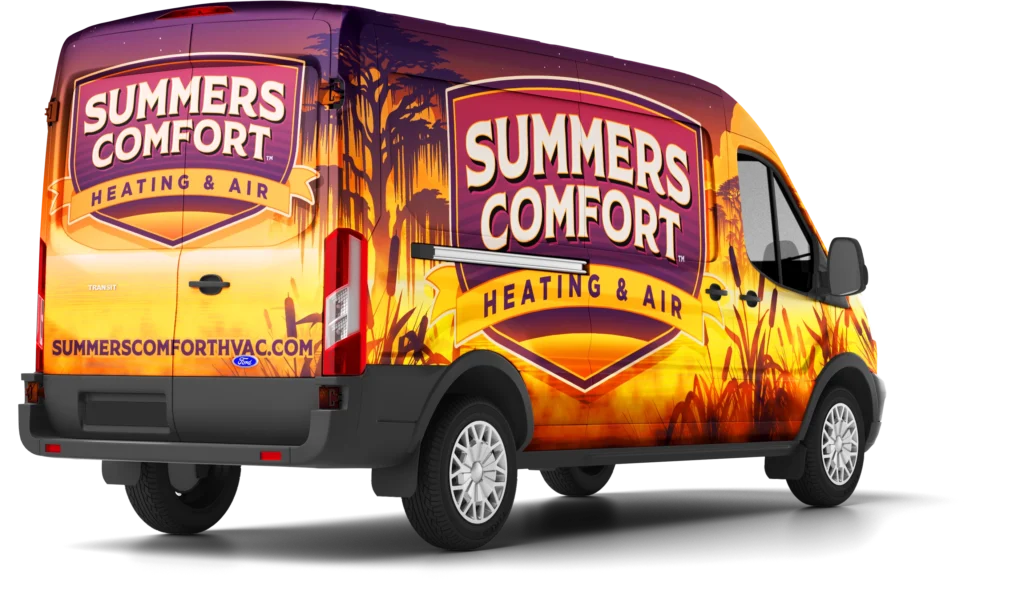When it comes to indoor air quality, few things confuse homeowners more than the MERV rating on air filters. You may see the numbers listed on packaging, but understanding what they mean is another story. That rating isn’t just a random figure—it determines how well your filter can trap dust, pollen, pet dander, and other particles.
At Summers Comfort Heating & Air, we’ve walked countless homeowners through choosing the right filter. Let’s break down the MERV rating system, how it works, and how to pick the right level for your home.
What Is a MERV Rating?
The MERV rating stands for “Minimum Efficiency Reporting Value.” It’s a standard created by the American Society of Heating, Refrigerating, and Air-Conditioning Engineers (ASHRAE). The scale runs from 1 to 20. Lower numbers mean a filter captures fewer particles, while higher numbers trap much smaller pollutants.
According to ASHRAE, this system ensures filters are tested the same way, giving homeowners and technicians a reliable way to compare products.
Why the MERV Rating Matters
Your filter’s MERV rating has a direct impact on your comfort, health, and system performance.
Air quality – Higher ratings capture more dust, pollen, mold spores, and even bacteria.
System performance – Extremely high-rated filters may restrict airflow if your system isn’t designed for them.
Energy use – When airflow is restricted, your HVAC works harder, which increases energy costs.
The EPA notes that HVAC filters can help reduce indoor air pollution, but selecting the right filter for your system is just as important as the filter itself. For many families, cleaner air begins with the right indoor air quality solutions. At Summers Comfort Heating & Air, we take pride in helping homeowners choose filters that work seamlessly with the indoor air quality services we provide.
MERV Rating Levels Explained
Low Ratings: 1–4
Filters in this range capture large particles like dust mites and carpet fibers. They’re inexpensive, but they don’t do much for allergies or finer particles.
Medium Ratings: 5–8
A MERV rating of 5 to 8 captures mold spores, dust, and pet dander. These filters strike a good balance for most households and are widely recommended.
High Ratings: 9–12
Filters rated 9 to 12 capture finer particles, including some bacteria and smoke. They’re a good option for households with asthma or allergy concerns and those looking to improve overall indoor air quality.
Very High Ratings: 13–16
Filters in this range are often used in hospitals. A MERV rating this high can trap bacteria, tobacco smoke, and sneeze droplets. However, not all residential systems can handle these without modifications.
Ultra-High Ratings: 17–20
These are true HEPA-level filters, typically used in clean rooms or labs. They are rarely suitable for standard residential systems.
Choosing the Right MERV Rating for Your Home
So, what’s the right choice? For most homes, a MERV rating between 8 and 12 offers the best balance between clean air and efficient system performance. Families with allergy sufferers may benefit from the higher end of this range.
Before going beyond 12, it’s important to consult with a professional. At Summers Comfort Heating & Air, we test airflow and system design before recommending filters. A filter that’s too restrictive may actually harm your HVAC system instead of helping it. Families across Gastonia and the surrounding areas rely on us to help them choose the right balance for comfort and efficiency.
Signs You May Need a Higher MERV Rating
Persistent allergy or asthma symptoms indoors
Excessive dust buildup despite regular cleaning
Strong odors lingering longer than normal
Visible particles coming from vents
These symptoms don’t guarantee you need the highest filter available, but they are signs it may be worth upgrading your filter’s MERV rating.
Maintenance Still Matters
When your filter clogs, it can’t do its job. A dirty filter strains your HVAC system and reduces air quality. Most manufacturers recommend replacing filters every one to three months, but households with pets or allergy sufferers may need to change them more often.
Routine maintenance—like filter replacement and coil cleaning—helps maximize the benefits of the right MERV rating. The Department of Energy also emphasizes that regular care prevents higher energy use and keeps HVAC systems running efficiently.
When to Call in the Pros
While swapping filters is easy, choosing the right MERV rating isn’t always straightforward. Every HVAC system has limits, and installing a filter that’s too restrictive could shorten your system’s lifespan.
That’s where we come in. At Summers Comfort Heating & Air, we help families choose filters that match their needs and systems. From allergy concerns to energy efficiency goals, we’ll recommend a solution that balances clean air and proper airflow.
Final Thoughts on the MERV Rating
Your filter’s MERV rating is more than a number—it’s a guide to healthier air and better system performance. By understanding what those ratings mean and working with HVAC professionals, you can make sure your home has the right balance of clean air and efficiency.
At Summers Comfort Heating & Air, we’re here to help homeowners across Gastonia, MT. Holly , and the surrounding areas find the right solutions. If you’re not sure which rating is best for your home, reach out to our team today—we’ll help you breathe easier.

